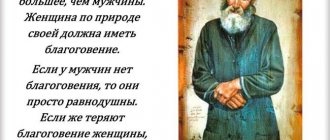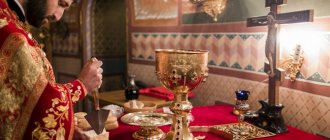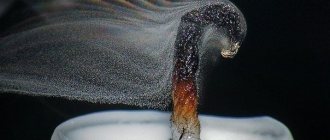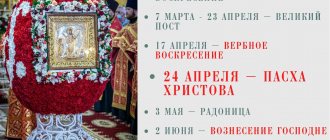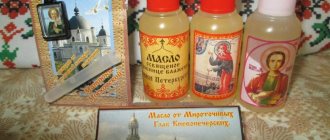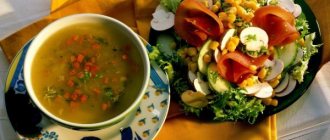Why is wine used at Communion if alcohol is harmful to health?
Hello! It’s good that you are interested in issues of faith, although you call yourself an atheist. When a person is indifferent to the basic issues of existence and he has no craving for God and truth, this is bad.
But why were you interested in this particular aspect of the Orthodox Christian faith? In ancient times, the Sacrament of Communion was spoken about only to people preparing to be baptized. This knowledge was not available to outsiders.
Have you read the Gospel? Remember the first miracle performed by Christ? This is a miracle in Cana of Galilee, where during the marriage peace the Savior turned water into wine (John 2:1-10). By the way, pay attention, when the wine ran out at the feast, Christ did not say: “That’s enough, guys.” He gave them the best wine. And to His faithful children, poetically called in the parable “the sons of the bride” (Matthew 9:15), the Lord gave His Body and Blood for the salvation and enlightenment of souls. These are not symbols, this is exactly how it is. That is why it is called a Sacrament, because under the guise of bread and wine we partake of the Body and Blood of Christ. This is how Orthodox Christians believe according to the Holy Scriptures and the word of the Lord Himself. And there can be no harm from Communion for children. This is confirmed by the two thousand year history of the Church. I'll give just one example. Saint Andrew, Archbishop of Crete, was mute until he was 7 years old and spoke only after Communion.
For Communion, only red grape wine from the vine is used, and nothing can replace it. This is how the Lord established it, these are the church rules. Read these Gospel lines:
And while they were eating, Jesus took the bread and, having blessed it, broke it and, giving it to the disciples, said: Take, eat: this is My Body. And, taking the cup and giving thanks, he gave it to them and said: drink from it, all of you, for this is My Blood of the New Testament, which is shed for many for the remission of sins. But I tell you that from now on I will not drink of this fruit of the vine until that day when I drink new wine with you in the kingdom of My Father (Matthew 26:26-29). See also Mk. 14:22-25; OK. 22:17-21.
Jesus said to them, “Truly, truly, I say to you, unless you eat the flesh of the Son of Man and drink his blood, you will not have life in you.” He who eats My Flesh and drinks My Blood has eternal life, and I will raise him up on the last day. For My Flesh is truly food, and My Blood is truly drink (John 6:53-55).
And your “knowledge” about the dangers of a drop of alcohol for a child is based on trust in the words of doctors. You didn’t conduct the relevant research yourself. Yes, I don’t think that such things have ever been carried out (regarding the “drop”). Believe and trust in God, who makes no mistakes, “has provided better things for us” (Heb. 11:40) and has promised to give us life and life more abundantly (John 10:10).
Hieromonk Job (Gumerov) answers:
The question apparently arose because some believers incorrectly believe that on the day of communion after receiving the holy mysteries one should not eat meat. This opinion arose due to a misunderstanding of the spiritual meaning of fasting. Fasting before communion is established as a feat of abstinence, so that we acquire a reverent disposition to receive the greatest shrine. After communion, if there is no fasting, you can eat any food.
Church rules prescribe the observance of statutory fasts, but prohibit the aversion to meat or any other food. Thus, in the “Apostolic Canons” it is said: “If anyone, a bishop, or a presbyter, or a deacon, or in general from the sacred rank, withdraws from marriage and meat and wine, not for the sake of the feat of abstinence, but because of abomination, forgetting that all good things are green and that God, having created man, husband and wife, created them, and thus blasphemed, slandered the creation: either let it be corrected, or let it be expelled from the sacred rank and rejected from the Church. So is a layman” (Rule 51). This decree is based on the statement of the holy Apostle Paul: “For every creation of God is good, and nothing is blameworthy if it is received with thanksgiving, because it is sanctified by the word of God and prayer” (1 Tim. 4: 4-5).
Commenting on the above apostolic rule, Bishop Nikodim (Milosz) writes: “Already at the very beginning of the existence of the Church of Christ, various heretics appeared, preaching that it was sinful and not pleasing to God to marry, eat meat and drink wine, and forbade all this to their followers. This view stemmed from the Gnostic concept of matter in general, which, according to their teaching, was the creation of the devil and, therefore, unconditional evil. This false concept was especially developed among the Encratites and Marcionites, who insisted more than other Gnostics on the practical application of such a view. The words of Holy Scripture cited at the beginning of this interpretation serve as an obvious condemnation of this Gnostic teaching about matter as absolute evil. We find the same thing in the apostolic decrees (VI. 8, 10, 26), which distinguish the Marcionites, who abhorred marriage, meat and wine due to their dualistic principles (good and evil), from the Encratites, who adhered to this view out of some hypocritical pride . From the above-mentioned heretics, this teaching began to penetrate among the Orthodox. To prevent this evil, the apostolic canon praises abstinence from marriage and the consumption of meat and wine for a Christian purpose, that is, as an exercise in virtue, but it sharply condemns all those who do this for heretical reasons and prescribes: every clergyman who adheres to such a teaching must indicate first of all, on the gospel teaching; if he does not obey and remains stubborn in evil, then he should not only be cast out from the hierarchical level, but also completely excluded from the Church as a follower of the heretical teaching on abstinence.”
October 27, 2009
What not to do on the Presentation of the Lord on February 15, 2022
On Candlemas, any work other than those that serve people for the benefit is prohibited. Making money is considered a sinful activity. The exception is professions aimed at helping others.
There is no need to drink alcohol, which clouds the human mind and makes people dependent on bad habits.
There is a ban on household chores. Washing and cleaning should be done on weekdays. On church holidays, it is customary to devote time to the Lord and prayers to find the righteous path and cleanse the soul. This is also a time to do good deeds and communicate with loved ones.
You cannot swear or use swear words. Foul language is one of the deadly sins that destroys a person’s connection with the Higher powers and deprives him of protection and patronage.
There was a ban on washing, and all because the bathing process caused a lot of trouble and took a lot of time. It was necessary to chop wood, heat the bathhouse and carry water. And since hard work on holidays was not welcomed, they preferred to wash the day before in order to meet the bright day with a clean soul and body.
How to behave in the morning before the Sacrament of the Eucharist?
On the day of Communion, you should not just “subtract” the morning rule and “finish reading” the sequence. First of all, it is worth praying carefully so that the Lord will vouchsafe us to receive communion. We are all unworthy of the Body and Blood of the Savior, so we must gratefully accept this life-giving gift.
Should I brush my teeth?
The question is often asked: is it possible to brush your teeth in the morning? Some “orthodox” believe that it is impossible. But many priests answer: it is possible. Why?
If it is unpleasant for a person to go to work or communicate with people because of the unpleasant smell from his breath, then how can he approach the Chalice in this form and with such a feeling? We must come to Christ with a pure heart and clean lips. In all senses.
Communion and taking medications
Another problematic question: how to take communion if you have to take pills in the morning?
Bishop Mark Golovkov says that the pills are not food, but medicine. If you have serious health problems and it is dangerous for you to interrupt the course of some drug, then you should not refuse both the pills and Holy Communion.
If you take some vitamins or nutritional supplements, and nothing serious will happen when you take them not in the morning, but in the afternoon, then why panic? You can calmly take communion, and when you get home, take vitamins or medications.
If everything is more or less clear with behavior before Communion, then many questions remain with what is possible and not possible after receiving the Holy Gifts.
Did Christ drink Cahors?
It is now impossible to find out what kind of wine Christ drank with the apostles at the Supper, but it is known that the traditions of winemaking in Judea were ancient. San Francisco theologian Daniel Kendall and anthropologist Patrick McGovern of the University of Pennsylvania believe that in ancient times, Jews, unlike their neighbors, drank quite strong, concentrated and sweet wines.
In the Old Testament there are lines in which the capital of Judah is compared to a harlot: “Your silver has become dross, your wine has been spoiled by water” (Isaiah 1:22), which suggests that the Jews did not dilute their wine. Very often in biblical times, herbs, dried fruits, honey, spices and even resin were added to it to make it last longer. In 2013, remains of wine mixed with honey, cedar, mint, resin and cinnamon were found near Nahariya. There is a known case when in one of the ancient cities of Israel a vessel was found with an inscription that it contained wine made from black raisins. This means that the wine was not only concentrated, but also very sweet and dark in color, that is, very similar to modern Cahors.
Knowing all this, it is easy to imagine that dark, aromatic, thick, dark wine, saturated with the southern sun, in which Christ dipped the bread, saying at the same time: “...this cup is the New Testament in My blood, which is shed for you” (Lk 22:20).
Therefore, it is quite natural that Orthodox Christians take communion with red, sweet wine. In some other Christian churches this is considered optional and communion is also given with light dry wine.
Folk signs for February 15
- What is the weather on Candlemas, such will be the spring.
- On Candlemas morning, snow is a harvest of early grain; if at noon - medium; if in the evening - late.
- On the Meeting of Drops, there will be a harvest for wheat, but if there is a blizzard, then there will be no bread.
- If a thaw sets in on this day, spring will be early and warm; if the cold turns away, spring will be cold; fallen snow means a long and rainy spring.
- If the sun comes out before sunset, the last frosts have passed, and if it doesn’t show up, then there will be severe Vlasyev frosts.
- If the sky is starry, then spring will be late.
- If the rooster drinks water on this day, then spring will be early and warm.
For Russia - only Cahors!
After the baptism of Rus' by Vladimir, expensive wine for church needs was imported from other countries, first from Byzantium, then from France, from Italy and even from Spain. For the first time, Russian chronicles write about Cahors as a communion wine already in the 13th century, and the name comes from the name of the French town of Kahor, where in the Middle Ages the most expensive wines were produced on the river bank. The decision of the Council of 1551 prescribed the use of Italian “Fryag” wine for the church sacrament.
Since the country lacked operational transport links and had to travel vast distances, problems often arose with the storage of dry European wines. – they soured, turning into vinegar. Therefore, preference was given to wines with a higher alcohol content – fortified ones, as they could withstand long-term transportation without problems.
It was only at the beginning of the 17th century that grapevines from Transcaucasia were brought to the south of Russia. Russian monks began to grow it, harvest grapes and make their own wine. It is known that the nobility liked the Russian Cahors so much that already in 1613, Tsar Mikhail Fedorovich ordered it to be supplied to the royal table, because such wine was used not only for the Eucharist, but was also served on holidays.
It was from the 17th century that Cahors spread throughout Rus' as wine, closely associated with church sacraments, and was supplied to all churches and monasteries. Of course, Russian Cahors wine differed from European wine both in the grape variety (in Russia it was made from the Saperavi and Cabernet varieties) and in the preparation technology.
For the Sacraments you need the “correct” Cahors
Since 1699, the so-called “Instructive News”, which describes the proper preparation of a priest for various types of worship, began to be published in the Priests' Books. It describes exactly what kind of wine is suitable for the Eucharist: it must be grape, undiluted, without additives, have a pure, clear taste and be “ready for drinking”; spoiled, sour or cloudy wine was not suitable for communion.
However, in difficult times the church sometimes deviated from the rule of giving communion to Orthodox Christians with bread and wine - it happened that there was simply no wine. For example, the Hieromartyr Patriarch Hermogenes in the Time of Troubles allowed the Eucharist to be celebrated with cherry juice. During the revolutionary devastation, in order to resolve this issue, meetings of the Department of Divine Services and the Council of Bishops were specially convened, which allowed, in exceptional cases, in the absence of wine, to celebrate the Eucharist “with some berry juices.” This decision came in handy during the siege of Leningrad, when services in churches were held every day, and instead of wine, parishioners received communion with liquid cranberry juice, and prosphora was made from priests’ rations.
